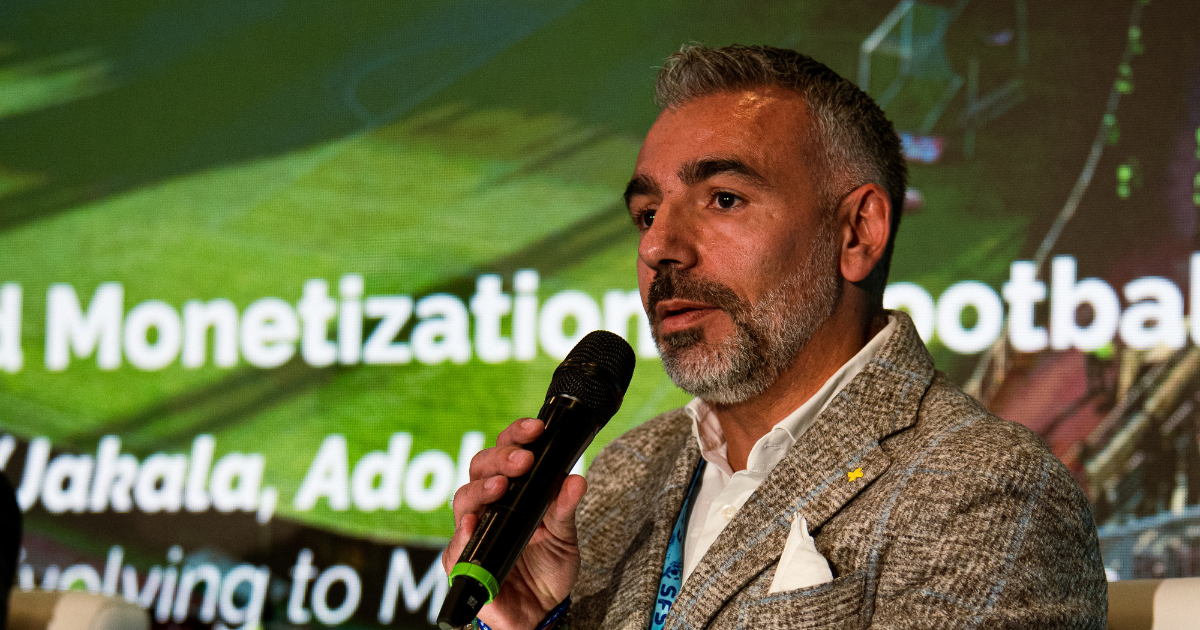
Data Wars in Football: How Data, Ethics and Personalization Are Shaping the Future of Fan Engagement
The panel “Data Wars: Ownership, Ethics and Monetization in Football” brought together some of the leading figures in digital innovation within the football industry. Speakers included Pierdamiano Tomagra, Head of Digital at Serie A, Raffaele Cerchiaro, Managing Director at Jakala, Andrea Peron, Sales Leader at Adobe Experience Cloud, and Claudia Di Renzi, Head of Accounting, CRM & Loyalty at FIGC. The session was moderated by journalist Giulia Piscina.
In modern football, the decisive match is increasingly played off the pitch — and it revolves around data. Those who control data hold the power to understand, predict and influence behaviors and strategies. This is the essence of data wars, the new competition shaping the sports industry around the acquisition, management and exploitation of information.
Andrea Peron from Adobe explained how data now sits at the heart of fan experience: “Every fan receives around five thousand branded messages a day, and our brain must decide what to pay attention to. Relevance is crucial: having data means knowing what interests fans, following the logic of fan engagement. Thanks to these strategies, Real Madrid has doubled its revenues from both e-commerce and its app.”
The issue is even more significant among younger generations. Gen Z expects personalized services, tailored content and continuous interaction. The integration of data and content is therefore essential — even in the B2B world, where data has become a key asset for clubs and leagues in conversations with sponsors.
Turning to Italian football, Jakala analyzed clubs from Serie A and Serie B along with a sample of fans to understand the level of fan engagement. “We tried to reconstruct the full matchday experience,” Cerchiaro explained, “as fans now expect ongoing interaction from clubs. The idea is to offer them the chance to share their data in exchange for added-value services: discounts, merchandise, benefits and targeted offers.”
However, the room for improvement remains substantial. Italian clubs still lag behind in segmented communication and differentiated engagement strategies. Tomagra highlighted how Serie A acts as a bridge between clubs and fans, trying to reconcile their needs: “Fans today seek a balance between digital and physical experiences. Leagues and clubs must elevate their capabilities, taking inspiration from top examples like Real Madrid, which has transformed its fan engagement strategy since 2021.”
For the FIGC, data strategy is equally critical. The federation has acknowledged how diverse its audiences are: “Speaking to fans of the men’s national team is not the same as addressing those of the women’s team,” Di Renzi explained. “For the past eighteen months, we have been developing a platform that integrates all channels and gathers every touchpoint related to fan behavior. The process is long and complex, but early data shows strong interest among 18-25-year-olds — and we need to engage them even more.”
The road ahead is challenging, but the direction is clear: bridging the gap with major European leagues through a smarter, integrated and ethical use of data. The potential is vast, and the path is now firmly set.



